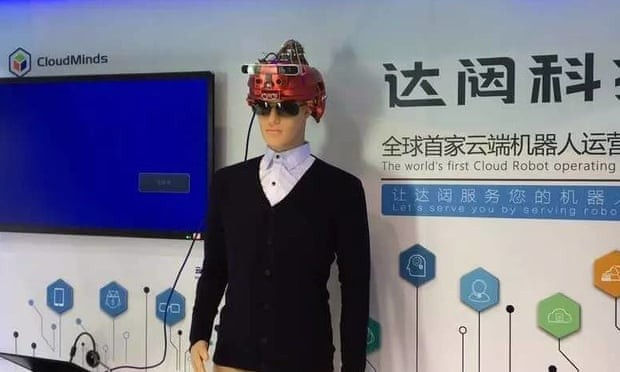How Artificial Intelligence Improves Human Life
- Renee Kalia

- Apr 16, 2020
- 4 min read

“As more and more artificial intelligence is entering into the world, more and more emotional intelligence must enter into leadership.”-- Amit Ray, PhD and Famous AI Scientist.
With all the concerns that Artificial Intelligence (AI) will be taking over jobs, there is a flipside. AI is not just about robots, 3D printing or self-driving cars that takes away the need for waitresses, factory workers or taxi drivers and so on. There’s a lot of ground-breaking and powerful examples where Artificial Intelligence has enhanced human life. There’s also clear evidence of increased productivity and profits too that are associated with user and customer experience.
Disability: 1 billion people around the world are living with disability. Artificial Intelligence amplifies these people’s abilities – which serves to improve quality of life.
Some notable enhancements include Employment – where AI has helped people with disabilities to develop professional skills. AI empowered tech for hearing, seeing and reasoning with increasing accuracy.
Here are some great examples of AI powered tech. There are countless examples, and I’ve compiled the ones I personally found both interesting and very touching.
Opening the world of books to deaf children
There are approximately 32 million deaf children around the world and many struggle to learn to read, often due to a lack of resources bridging sign language and reading. This amazing, innovative and life changing app from Huawei using AI enables growth and development for children around the world!
Kudos to Huawei for launching this AI powered app for free.

Meet Star, the avatar bringing books to life with sign language
The StorySign app helps deaf children learn to read

It reads selected children’s books and translates them into sign language, to help deaf children learn how to read.
Check out the app here:- https://consumer.huawei.com/uk/campaign/storysign/
Bionic gloves

The story of Brazilian pianist Joao Carlos Martins who was considered one of the great interpreters of Johann Sebastian Bach's music, retired last March after 24 surgeries trying to stop pains from a degenerative disease and a series of accidents. His limitations had forced him to work mostly as a conductor since the early 2000s.
A new pair of bionic gloves that are letting the 79-year-old play with both hands in more than two decades
The sign-language glove that gives a voice to the speech impaired

Already there are prototypes of gloves that translate the hand movements of sign language into speech, allowing real-time verbal communication with people not proficient in sign language
Truly Next Generation is the Cognitive Hearing aid
Monitors the brain activity of users to identify which voice the listener is focusing on. It then magnifies that audio while quietening surrounding noise, allowing for better hearing.
From the researchers at Columbia University, New York

Helping the visually impaired overcome travelling difficulties
According to World Health Organisation, there are about 285 million visually impaired people around the world. 30 million are completely blind and 246 million have weak sight.
Credit to Chinese company CloudMinds who have created this cycling helmet for the blind.

This cycling helmet uses sensors and cameras to map environs, send information to a cloud server that is processed by AI technology.
The information can be communicated through speech, helping blind people and those with visual impairments to navigate streets, recognise objects and negotiate traffic lights and crossings
Bionic Exoskeleton
The story of Lyle Fleming who was able to walk for the first time in six years thanks to thanks to an exoskeleton – or bionic legs.

Lyle was paralysed from the waist down in a work-related accident and had been in a wheelchair ever since.
The chance to try out an Indego exoskeleton that is worn around the waist and legs that allows people with spinal cord injuries to walk enabled him to walk again. The tech is designed to help those with paralysis to stand and walk.
Future exoskeletons may replace wheelchairs, providing greater mobility and health benefits.
Electrical Simulation to enable mobility
What an incredible outcome to a tragic situation that only 20 years ago would have been deemed hopeless.

The well-known case of David Mzee. 10 years ago, he was left paralysed by a gymnastics accident and told he would never walk again.
He completed a charity run where he walked 390 metres using an experimental treatment that uses electrical stimulation of the spinal cord to rejuvenate dormant circuits in patients whose spinal breaks are not complete.
Emergence of AI in Healthcare slower than other industries
Executives in healthcare are saying adoption of AI is not happening quick enough, according to a report from KPMG (link to it below). Many of the AI-related services and solutions being advanced in healthcare today are largely in the clinical, patient-facing space.
In fairness, we now see AI-assisted robotic surgery, virtual nursing assistants, aiding clinical judgement or diagnosis and automation of administrative tasks in addition to image analysis.
Latest insights indicate that AI enabled technology using machine learning is enabling personalised patient care and reshaping screening, diagnosis and treatment.
According to KPMG - only 44% of healthcare insiders say their employees are prepared for AI adoption, which is substantially lower than some of the other industries surveyed. Less than half of healthcare organisations (47%) offer AI training courses to employees.
Just 67% of healthcare insiders say their employees support AI adoption, the lowest ranking of any industry.
Technology leaders IBM, Huawei, Google and Microsoft for example have entire sections of their business focused with dedicated resources to build AI solutions.
All about compassionate artificial intelligence for the enhancement of human life.
Author: Renee Kalia





Comments